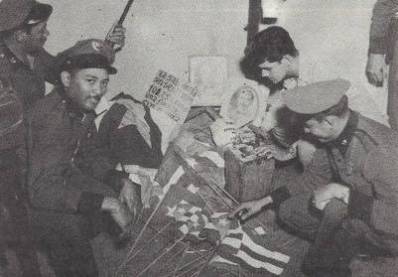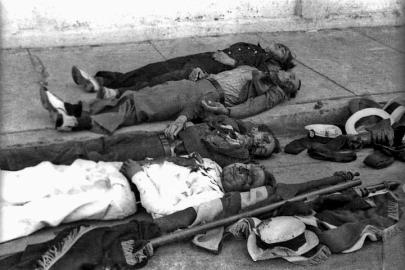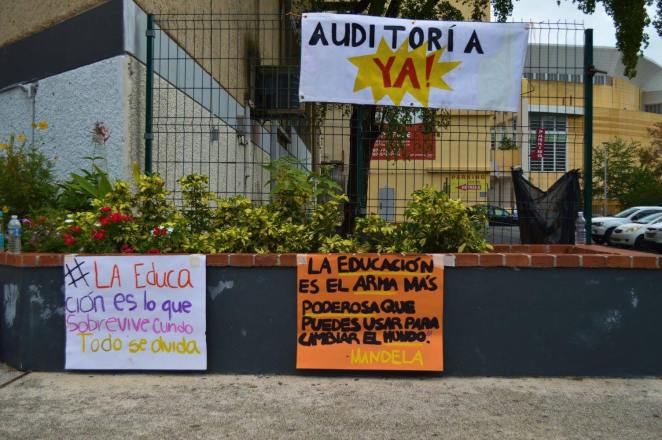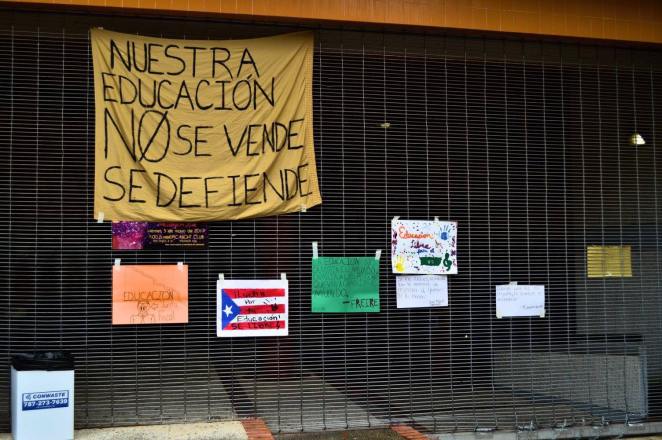Education is a social practice. When used by the free community, it is the cornerstone of a society where each individual has the tools to be responsible for themselves and the community as a whole can form the ideas and values for its reproduction. When education is in the hands of the state it is a tool for imposing hegemonic rule.
States and capitalists use education for colonization. The history of the United States in Puerto Rico spells out the educational dynamic of conquest. When the United States invaded Puerto Rico in 1898, one of the first things they did was take over the schools. Students were forced to speak English and pledge allegiance to the flag of the United States of America or else incur strong punishment. Military invasions are bound to fail without cultural invasion. Puerto Rican people were forced to adopt the culture of the invaders and adapt to their rule. The education imposed was not for empowerment and self reliance. It was only to destroy the culture which existed, a culture strong in its Spanish and Taino roots which had already established its own independent government in 1898 the same year as the US invasion. The invaders took children away from parents to indoctrinate them with American Ideology and train them as commodities to be exploited. The only skill they cultivated was obedience.


Through many battles and uprisings the Puerto Rican people resisted the abusive education of invasion. In 1930 (source) Pedro Albizu Campos was elected president of the Puerto Rican Nationalist Party. Using the education he strived for and was guided through by his parents and the legacy of other intellectuals before him (Betances; Schomburg), he was able to educate many people on the island about the true history of US imperialism. He was nicknamed “El Maestro” for the many lessons he gave in the town square in Ponce. His efforts led to the Matchetero Strike of 1934 which was very successful and gave workers on the island more power. His continued efforts led to a great degree of repression from US forces. Education in the hands of the people is a powerful weapon and makes rebellion against colonizers’ rule inevitable. No one armed with the knowledge of their oppression and methods of liberation can remain in chains. The US knew this and murdered many Puerto Ricans in the Ponce Massacre (1937), the Rio Piedras Massacre (1937) and in other skirmishes with liberation fighters. They also limited the peoples’ ability to reproduce with the sterilization of Puerto Rican women starting in the 1930’s. And the United States made it illegal to show Puerto Rican pride with the Gag Law of 1948. Puerto Ricans continued to educate themselves and organize against the US invasion which has taken away their means of self-determination.
Today the invasion of Puerto Rico is in its late stages. Many Puerto Ricans are leaving the island and those who stay are suffering more and more from the higher taxes and school closings as a result of the debt scam. Investors who “have bought up island debt at a discount have been looking for a big payday that would give priority to redeeming their investment over the island’s well-being.” Obama’s PROMESA bill only sped up the austerity measures. “In early 2017, the PROMESA board proposed to cut costs by closing 300 schools, imposing 20-day teacher furloughs and shortening the school year by 40 days.” It is obvious Puerto Rican self-determination and freedom is contrary to the wishes of the United States to continue sucking all life from the island to advance its colonial hold over the people and the land.
Public schools are closing and skilled individuals are leaving the island in search of work. Puerto Rico is in a weakened state. Oscar Lopez Rivera, who was recently released from prison for his political work in the 1970’s, also talks about the problem in various speeches about Puerto Rico. He talks about how Puerto Rico is the promised land for the diaspora. A promised land the PROMESA bill aims to take away from Puerto Ricans.

People on the island are still fighting to save social services. Students from the University of Puerto Rico were on strike for 3 months and have been increasing radical measures to fight the cuts. Instead of trying to go through the government to change the laws and budgets keeping a dying system of social services alive, now is the time for the people to create the social relations and hence services themselves. The same way Albizu Campos left Puerto Rico to study in elite universities and then returned to use the tools of his education for their proper use, liberation and decolonization, is the same way all those who have left Puerto Rico ought to return to the island to aid those who stayed to build a free community. This free community would have its own educational projects with the aim of critical consciousness and self-determination for each individual as well as the community at large. It would rebuild the capacity for medical services, construction, agriculture, the arts and so on. In every community around the world it is important to create our own free structures for communal relations and individual expression. We must regain the power to take care of ourselves, and dispose of the government which aims to cripple us and destroy us when it is finished consuming us. Using the works of critical pedagogy by Paolo Freire and others we will create a practice of radical education to combat the ideological education of the neoliberal neocolonizers of the United States and other outside forces who aim to manage people while they remain slaves. And we will use our skills and knowledge to create sustainable communities together with all free communities internationally.
